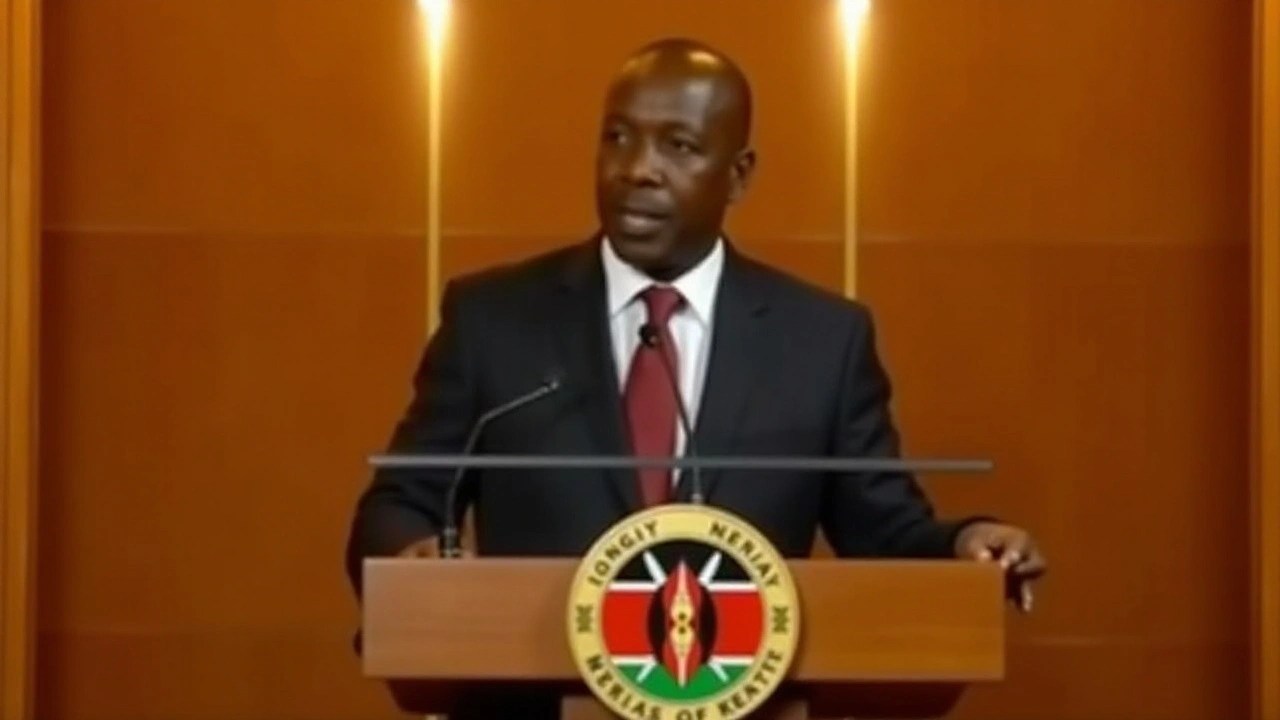Kenya's Senate Prepares to Tackle Deputy President's Impeachment
The political landscape in Kenya is charged with uncertainty as the Senate braces for a critical session next week to deliberate on the future of Deputy President Rigathi Gachagua. This follows a decisive vote in the National Assembly, where an overwhelming majority of lawmakers—281, to be exact—agreed to push for Gachagua's removal. Only 44 were against, with one lone abstention, far surpassing the necessary two-thirds threshold to escalate the matter to the Senate.
Senate Speaker Amason Kingi delineated the timeline, stating that the Senate would delve into the allegations over two days, Wednesday and Thursday, taking a comprehensive approach to the grave charges faced by Gachagua. These accusations, 11 in total, are severe, ranging from illicit financial gains to inciting ethnic tensions, presenting a complex tableau of ethical breaches and governance failures.
Gachagua's Stance Amidst Political Drama
Deputy President Gachagua has been vocal in his defense, categorically denying any wrongdoing. Describing the entire impeachment process as ‘theatre of the absurd,’ he casts himself as a target of political machinations rather than a perpetrator of malfeasance. This standoff between him and the government accentuates a notable fissure in Kenyan politics, especially given his erstwhile support for President William Ruto during the pivotal 2022 election campaigns.
What goes largely unstated, yet resonates with many Kenyans, is the palpable tension between Gachagua and President Ruto, which has simmered beneath the surface only to burst forth following recent socio-economic upheavals. The country has been rocked by protests, with citizens rallying against proposed tax hikes and the escalating cost of living. Gachagua’s remarks, which appeared to pit economic priorities against coalition loyalties, further fueled the political firestorm, unsettling many within Ruto's circle.
Public and Analyst Reactions
The reaction to the impeachment has polarized the country. Some voices, such as Robert Shaw, offer a bleak outlook, warning that the political tumult could further destabilize Kenya’s already fragile economy, potentially deterring investors and exacerbating financial woes. Shaw’s sentiment echoes a sobering reality for a nation grappling with economic instability, as the unrest compounds existing fiscal pressures.
Many ordinary Kenyans, like small business owner Melissa Kagondu, echo frustrations with the current administration's perceived ineffectiveness. Citing ongoing crises and a lack of tangible progress two years into their term, Kagondu’s exasperation underscores a broader public sentiment: if the leadership isn't delivering, perhaps it's time for a change. For some, this dissatisfaction extends not just to Gachagua but to President Ruto as well, suggesting a profound impatience with political theatrics overshadowing bread-and-butter issues.
The Path Ahead for Kenya
As the Senate prepares to serve as arbiter in this impeachment saga, the stakes are monumental. With potential ramifications stretching far beyond Gachagua's fate, the proceedings will undoubtedly capture the nation's—and indeed the international community's—attention. If two-thirds of the Senate concurs with the Assembly’s decision, it would result in Gachagua's dismissal, marking a watershed moment in Kenyan politics.
In these uncertain times, many Kenyans might find themselves weighing the merits of political stability against calls for accountability and leadership change. The political gale swirling through the country is both perilous and potent, demanding astute navigation from all political actors involved. Whether the focus should shift from harsh hyperbole to healing, from pointed accusations to practical solutions, remains an open question as Kenya treads carefully through its current political crossroads.
Conclusion: Balancing Political Integrity and Economic Stability
Kenya’s political narrative is fraught with complexity, necessitating a nuanced approach as leaders strive to strike a balance between governance integrity and economic sustainability. The impeachment proceedings serve as a critical inflection point, potentially redefining both individual political careers and the broader trajectory of the nation. As such, observers both at home and abroad await the Senate’s verdict with bated breath, knowing it could set a precedent for how Kenya navigates the interplay between leadership accountability and developmental progress.
Ultimately, for a country at the intersection of critical economic challenges and profound political debates, the path forward will demand cohesive leadership and collective resilience. As the country watches, Kenya stands poised on the brink of an unwritten chapter, one that hinges on the actions taken in the coming weeks and the vision crafted for its future.

